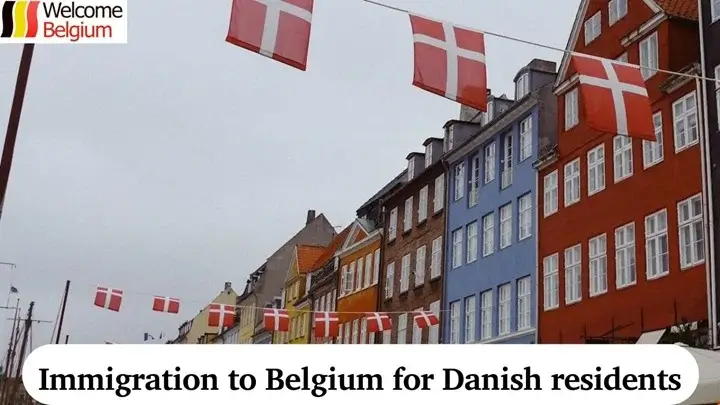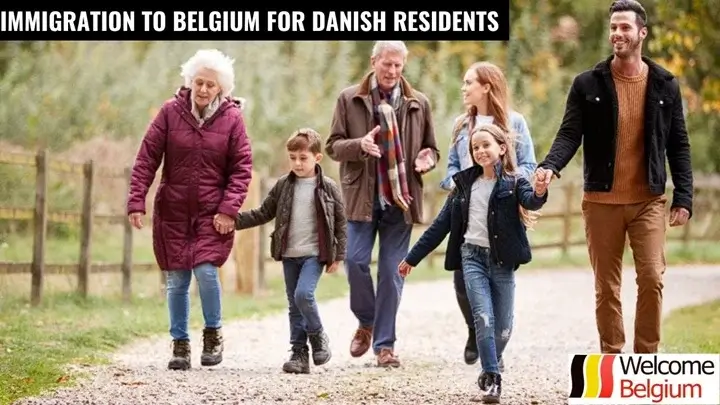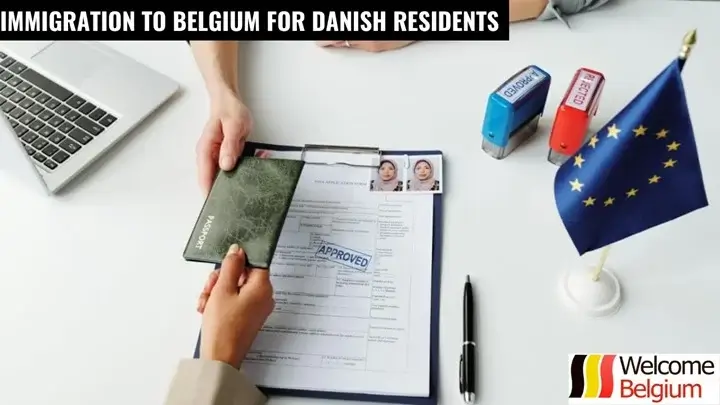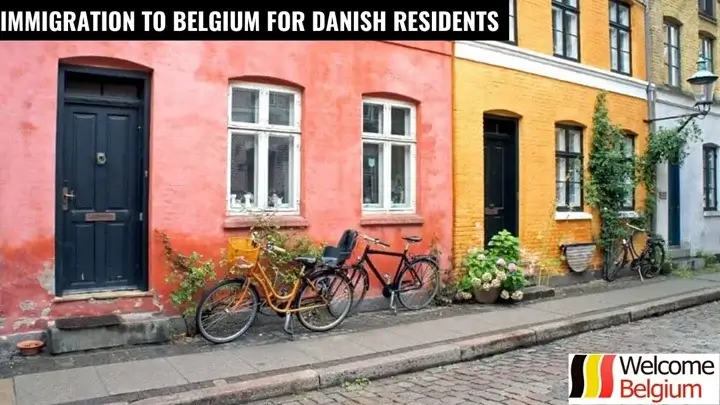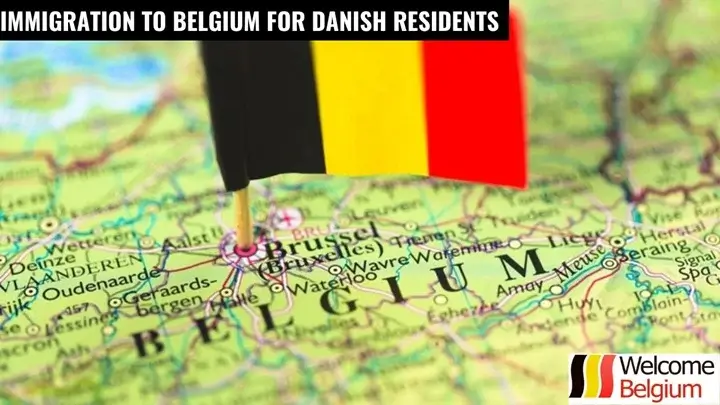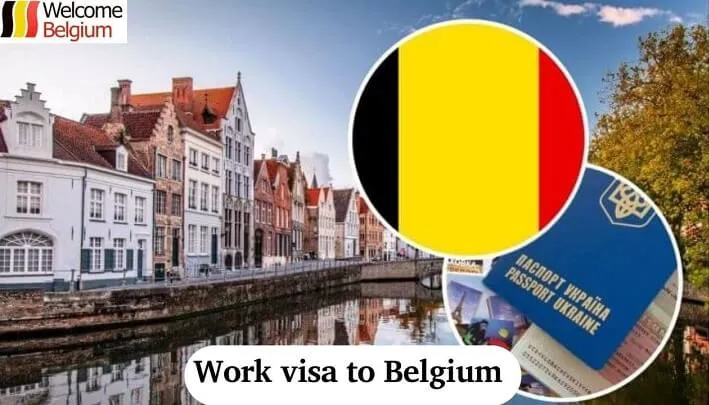Immigration to Belgium offers unique opportunities for Danish residents due to the close economic and cultural ties between the countries. Belgium attracts with its high standard of living, rich history and strategic location in Europe. In this article, we will look at the key stages of the move, including requirements, paperwork and adaptation to make the process comfortable and successful.
Advantages of living in Belgium
Living in Belgium offers many advantages for Danish citizens, including more affordable housing, high-quality healthcare, and an abundance of cultural opportunities. Although both countries have similar social standards, Belgium has lower taxes, a variety of languages, and a central location in Europe, making it ideal for travel and business. In this section, we look at how living in Belgium can be more beneficial for Danes, and what features make it attractive.
Advantages of living in Belgium for Danish citizens:
- Affordable Housing – The cost of renting and buying property in Belgium is significantly lower than in Denmark, making housing more affordable for most residents.
- Low Taxes – Belgium offers tax breaks for EU citizens to help reduce their financial burden.
- High level of medicine – Belgium has one of the best healthcare systems in Europe, offering high-quality medical services.
- Diversity of languages and cultures – The multicultural environment in Belgium makes it easy to adapt and find common interests with different people.
- Convenient location – Belgium’s geographical location allows for convenient travel to other European countries.
- Quality of life and social services – Belgium offers a high level of social services and protection, which ensures a comfortable life.
- Pleasant climate – Mild winters and moderate summers make the climate more comfortable than Denmark, where winters can be colder.
Despite all the advantages, life in Belgium also has its disadvantages. High utility costs and complicated bureaucracy can create difficulties for new residents. In addition, the difference in the standard of living between large cities and rural areas can be significant. However, with the right preparation, these issues are easily overcome when moving from Denmark to Belgium.
Learn about the Museum Mayer van den Berg in our article.
Fun fact: Belgium is famous for its chocolate traditions and hosts the largest chocolate festival in the world every year.
Requirements for immigration
Moving to Belgium for Danish citizens has its own peculiarities due to the fact that both countries are part of the European Union. This simplifies the immigration process, as the requirements for EU citizens are minimal. However, for a successful move, it is important to take into account some legal and administrative nuances, such as registration at the place of residence and preparation of the necessary documents.
Requirements for immigration to Belgium for Danish citizens:
- Passport or national identity card: For EU citizens, a valid passport or ID card is sufficient.
- Registration with local authorities: You must register within 8 days of arrival.
- Documents of financial solvency: confirmation of stable income or an employment contract.
- Health insurance: insurance that covers medical expenses in Belgium.
- Proof of residence: lease agreement or certificate of title to the property.
Despite the simplified conditions for EU citizens, there may be reasons for refusal of immigration, such as lack of financial means, lack of health insurance or problems with registration. It is important to prepare all the necessary documents in advance and take into account the peculiarities of Belgian legislation. If all requirements are met, moving to Belgium will be simple and fast.
Wage inequality in Belgium is described in detail in this article.
Tip: when applying for immigration to Belgium, it is important to make sure that all paperwork is in order in advance to avoid delays.
Cost of living in Belgium
The cost of living in Belgium for Danes may be somewhat higher than in Denmark, especially in the larger cities. At the same time, Belgium offers a wide range of housing options, as well as access to quality healthcare and education. For successful adaptation, it is important to study the main expenses, such as housing, transportation and food, in advance in order to plan your budget correctly.
Overview of major expenses
Moving to Belgium from Denmark requires taking into account many financial aspects. Some of the first expenses will be the costs of paperwork, rent, and transportation. It is important to plan your budget in advance to avoid unexpected expenses. Let’s look at the main expenses that immigrants will face when moving to Belgium.
Table of main expenses:
| Expense item | Minimum (€) | Maximum (€) |
| Registration of documents | 150 | 500 |
| Rent (per month) | 500 | 1500 |
| Transport (public) | 50 | 150 |
| Insurance (medical) | 100 | 300 |
| Food (per month) | 200 | 500 |
| Communication services (Internet, telephone) | 30 | 80 |
| Utilities (per month) | 100 | 300 |
| Education for children | 0 | 2000 |
To save on moving, it is important to carefully plan all expenses, look for inexpensive housing and transportation options. You can also choose less expensive areas to live, and for food and utilities – monitor expenses and look for more favorable offers. If you approach the budget issue correctly, moving to Belgium for Danes will be comfortable and financially accessible.
Fashion Museum Antwerp, read about the features in the article.
Tip: most major cities in Belgium offer various discounts on transport for new residents and students.
Cost of housing
The cost of housing in Belgium for Danish citizens depends on the region and type of property. In large cities such as Brussels and Antwerp, renting and buying a home can be more expensive than in more remote areas. Danes will find it easier to adapt to renting and buying conditions, as Belgium has convenient procedures and a developed real estate market. It is important to consider local taxes, fees and peculiarities that can affect the overall budget.
Tips for finding housing:
- Where to apply:
- Immoweb is the largest website for renting and selling real estate in Belgium.
Website: https://www.immoweb.be
Phone: +32 2 733 04 00 - Vlan is a website for finding accommodation in Brussels and other cities.
Website: https://www.vlan.be
Phone: +32 2 340 14 01 - Zimmo — for renting and buying real estate throughout Belgium.
Website: https://www.zimmo.be
Phone: +32 2 808 97 18
- Immoweb is the largest website for renting and selling real estate in Belgium.
- Cost of services:
Real estate agencies usually charge a commission of 1-2 months’ rent. When purchasing a property, there may be additional costs such as notary fees (around 1-3% of the property value), as well as registration and tax fees.
To save on housing, it is worth paying attention to less popular areas, where rental and purchase prices are lower. You can also consider options with long-term rent, which will reduce housing costs. It is also important to carefully check all additional costs to avoid unpleasant surprises.
How to enroll a child in a Ghent kindergarten? Step-by-step instructions.
Tip: when looking for accommodation, be sure to check the rental terms and any additional fees to avoid unnecessary expenses.
Taxation in Belgium
Taxation in Belgium has its own peculiarities that are important to consider when moving, especially for Danish citizens. The country has a high tax burden, but at the same time provides many social benefits and a developed health care system. Understanding tax obligations will help avoid unpleasant surprises and make the move as comfortable as possible.
Main taxes for Danes moving to Belgium:
- Income tax: from 25% to 50% depending on income. Paid annually.
- Value Added Tax (VAT): 21% on most goods and services.
- Social contributions: about 13.07% for employees, subject to change depending on the region.
- Property tax: up to 1.25% of the market value of the property.
- Capital tax: depending on the type and size of property.
In Belgium, there are a number of legal ways to minimize your tax payments, such as using child tax credits or health care expenses. It is important to consult a tax professional to optimize your payments. This will help you plan your budget effectively and avoid additional expenses.
Tip: if you are planning a long-term stay, consider family tax credits, which can significantly reduce your taxable income.
Family immigration
Family immigration to Belgium for Danish citizens is possible if the main applicant (a Danish citizen) is already in the country for work, study or with a residence permit. Family members can join if they are spouses, children or other dependent relatives. The process of applying for family reunification involves a number of steps, from submitting documents to waiting for permission.
Stages of family immigration to Belgium for Danish citizens:
- Applying for Family Reunification
- Where to apply: Federal Agency for Migration, Belgium.
- Address: Avenue du Roi Albert II, 20, 1000 Brussels.
- Website: https://www.ibz.be
- Phone: +32 2 793 80 00.
- Cost: about 200 euros (depending on the situation).
- Waiting time: from 3 to 6 months.
- Waiting for a decision
- Obtaining a visa to enter Belgium
- Registration with the local service
- Registration address: local office of the commune.
- Website: https://www.belgium.be .
- Telephone: local number at your place of residence.
If your application for family reunification has been rejected, you should carefully examine the reasons for the rejection and file an appeal within the prescribed time frame. In case of further difficulties, you can seek help from a lawyer specializing in immigration law. Regularly updating documents and complying with all requirements will increase the chances of a successful resolution of the issue.
Tip: before applying for family immigration, make sure all documents are translated and notarized.
Obtaining a residence permit
Obtaining a residence permit for Danish citizens in Belgium is an important step in the relocation process. EU citizens have a simplified procedure, but there are certain steps that must be followed to successfully complete the process. In this section, we will look at the preparation, key requirements, and steps required to obtain a residence permit.
Stages of obtaining a residence permit in Belgium for Danish citizens:
- Preparation of documents (passport, financial solvency, residential address)
- Submitting an application to your local municipal office
- Address: [local municipality address]
- Website: [link to website]
- Phone: [phone number]
- Waiting for a decision (2 to 4 weeks)
- Obtaining a residence permit (cost from €25 to €100)
After receiving a residence permit, Danish citizens can apply for citizenship after 5 years of residence in Belgium, if they meet all the requirements. It is important to prove integration and stable residence in the country.
Tip: the process of obtaining a residence permit for EU citizens in Belgium is quite fast and requires minimal effort.
Adapting to life in Belgium
- Job search. Use sites like VDAB (for the Flemish part) or ACTIRIS (for Brussels). These sites provide job vacancies and employment information for immigrants.
- Place your child in a kindergarten. Check local kindergartens through the municipality or portals such as ” MyChild ” for Brussels.
- Schools for children. You can register for schools through your municipality’s website. Look out for schools with programs for children who do not speak French or Dutch.
- Pursuing Higher Education: Explore programs for international students at major universities such as KU Leuven and UCLouvain.
- Government Services: For information on social benefits and health care, contact your local government services.
- Language courses: Enroll in French or Dutch courses to help you integrate.
- Immigrant support groups: Find expat groups and forums, such as Expatica, to share experiences and get help.
- Meeting and socializing: Participate in social events or immigrant clubs to make friends and improve your language skills.
- Health Insurance: Get health insurance as soon as possible to ensure you have access to quality health care.
- Understanding the Tax System – Get tax advice for immigrants in your area to avoid unpleasant surprises.

